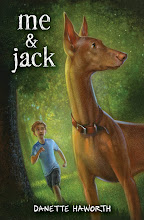I just love America's Next Top Model--the crying, the backstabbing, the tension, and, oh, yeah, the photo shoots. I like Tyra Banks. She's offering herself as a mentor in a field in which she is a superstar.
I think there should be an America's Next Top Writer. Thousands of writers would compete for a $500,000 contract with a big name publisher, a profile in a magazine, and a free website. Big Name Writer would head up the panel, and writers like Sue Miller, Anne Tyler, Kate DiCamillo, Sara Zarr, Laura Lippman, John Sandford, Ann B. Martin and others would rotate on the panel.
Panel members cull the first thirty-six finalists from more than 45,000 queries. "You don't know how bad I want this," we cry into the camera upon hearing our names called. "I'll make my characters do anything." After this first cut, we're made to write outside of our comfort zone. The literary types have to write romance. Children's writers have to write gritty crime fiction. Crime writers have to write literary, and two of us must write in rhyme for adults. We lose sixteen writers as a result of this challenge; the rest of us are flown to the house in New York!
Cuts come rapidly after that. "Not enough personality," the panel tells us. "Too much chin. You keep using the chin." We're not allowed to smoke. Some of us don't smoke anyway, and we're secretly glad that our competitors are burdened with trying to quit while trying to win. We talk about each other, "She says she writes MG, but her characters are TOO OLD for MG!" And sometimes we help each other out, "You should use the cookbook to connect the past to the present." But we all hope to win.
During the flash contest, we're given twenty minutes--TWENTY MINUTES!--to come up with a flash fiction, five hundred words or less, that hooks the panel and makes them believe. Some of us don't make it; we've barely drafted a rough idea before time's up. Some of us have completed our assignment, and some of us feel like we've done it well. Then the panel reads what they say is the most brilliant piece produced during the session. As Big Name reads it, we look around at each other. Who wrote it? We shrug our shoulders. I don't know. Not me. Big Name reads the author's name. What? It's the writer we all hate! The pretentious one who insists upon wearing those black reading glasses she claims are prescription but one of us tried them on and they're just glass! No! This can't be happening! The world is so unfair.
Right before our meltdowns begin, Big Name peers over the top of the manuscript and stares at the writer in question. "Well-written," she says. "But you had an advantage over the other writers, didn't you?"
Our eyes lock onto the writer, her pale, unlipsticked mouth quivering. We turn like wolves on a wounded cow.
"No, no," she says, jerking her head erratically. "I . . . what are you talking about?"
"You wrote 'a lot'," Big Name says, "as one word."
The writer's mouth falls open. Her eye clear with realization. "No! NO!" She drops to the floor, a weeping heap of writer, and she's clutching the manuscript with which she'd hoped to win the 500k contract. With her tears blemishing the manuscript (she'll have to print a new one to send out now), she claws out a red pen from behind her ear. "I can edit it!" She sniffles. We like her now. We feel sorry for her. "Please!" she entreats them.
Big Name turns to the panel. With tight lips, panel member shake their heads. Big Name turns back. "Five hundred and one words. You failed to stay within word count." She lowers her voice to a dramatic timbre. "You must now return to the house, gather your belongings, and leave."
The writer doesn't get up, so grammar police grab her and escort her out. "I coulda been a contender!" she shouts as they push her forever out.
We snicker amongst ourselves. A cliche! Never use a cliche in front of the panel!
There's a feeling of relief at the house tonight. We've survived the first two challenges. Some are content enough with that and they flop onto their beds and fall asleep. The rest of the house is dark, illuminated only by laptop screens and the faces that reflect the light in front of them. We hear one writer ask another, "Is my participle dangling?"































